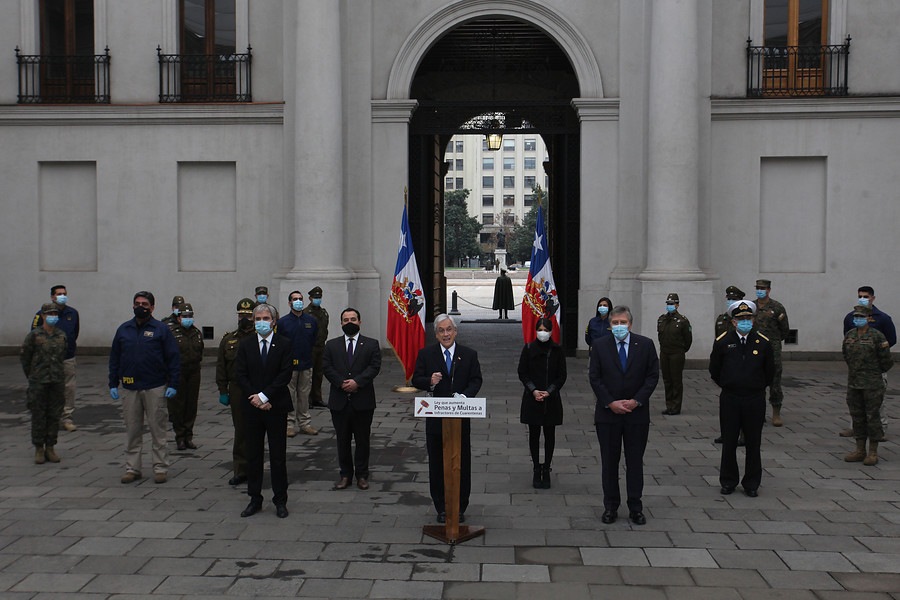RIO DE JANEIRO, BRAZIL – The government of President Sebastían Piñera has passed a law to raise the penalties for violating quarantine measures. From now on, people who fail to observe curfews and meeting bans, for instance, may be punished with up to five years in prison.

Independent research institutes criticize the form of pandemic control and the government’s repressive approach: “People do not comply with quarantine because they have to work,” explains Pia Mundaca, director of the private Espacio Público.
On June 23rd, Chile, with over 250,000 infections, passed the case numbers of Spain and Italy, while having a significantly smaller population. Currently, the coronavirus is spreading mainly in the capital Santiago, but recent figures also report an increase in other regions that had so far been less affected.
The government recently reacted to the catastrophic situation by dismissing its Minister of Health, Jaime Mañalich, after the coronavirus crisis management was heavily criticized by the population. At the same time, the blame for its extensive spread is being laid on the population: “There are very many irresponsible people,” Piñera said when the law was passed.
According to the Ministry of the Interior and the military police, almost 100,000 people have been taken into custody at least temporarily since March 19th for “crimes against public health”; half of them are between the ages of 18 and 30. In most cases, they were not complying with the curfew.
The information does not state whether among them were participants in the hunger protests. On March 18th, Piñera declared a state of emergency in the country.
The director of the Espacio Público research institute, Pia Mundaca, said: “The problem lies in the design of the lockdown.” Far too many people are forced to leave their homes daily for work. According to a study by the institute, in just under 60 percent of all households, at least one person needs to go out to work.
It is, therefore, no surprise that mobility in the poorest sections of the population has only decreased by about 30 percent. Mundaca consequently called for emergency aid programs – such as the food packages and the emergency pay, which is about one third of the minimum wage – to be maintained and extended.
Mundaca’s arguments were complemented on Monday by research conducted by journalist Alejandra Matus. She found that some companies ostensibly changed their business activities in order to secure a special permit for their employees to leave the house.
For instance, the clothing chain Fashion’s Park acted as a security company and obtained 70 special permits. Other companies claimed to be pharmacies or supermarkets. In addition, many employees were forced to request exit authorizations by falsely stating that they were visiting a doctor or shopping for food, the journalist said.
In response to her report, the new Minister of Health, Enrique Paris, ordered improved controls on companies. The prosecutor’s office has launched investigations into the seven companies named by Matus.
However, the President himself was met with criticism: musicians were invited to the funeral of his uncle, priest Bernardino Piñera, who died of coronavirus, and far more than the 20 permitted people attended. The President personally arranged for the casket to be opened. In Chile, people who have died of Covid-19 must be wrapped in a body bag and buried in a sealed casket.
Several Ministers, including Paris, defended Piñera’s conduct and saw no violation of the regulations. But even the president of the right-wing governing party Renovación Nacional, Mario Desbordes, criticized the behavior: “I don’t understand how it gets into someone’s head to hire musicians.”
Chilean Communist Party deputy Camila Vallejo stated in her Twitter: “Once again the message is sent: Prison for the poor, impunity for them. How can the government demand something that it does not follow itself?”

